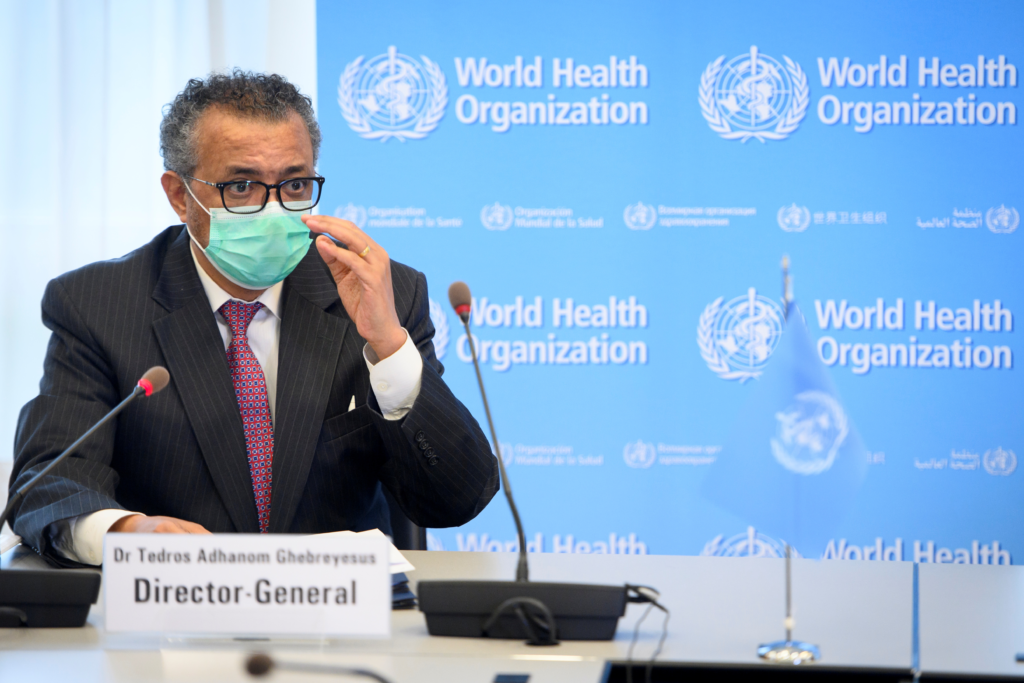U.S. Health Secretary Robert F. Kennedy Jr. has caused confusion with his recent remarks on COVID-19 vaccine recommendations. His statements, which differ from current medical guidelines, have left healthcare providers and insurance companies uncertain about the correct vaccine administration approach.
Kennedy’s comments come as the U.S. prepares for the annual fall vaccination campaign, but instead of clarity, they have created uncertainty.
More details on the U.S. Department of Health’s COVID-19 guidelines can be found here
Doctors Struggle With Contradictory Messages
Kennedy stated that “individuals under 65 with no comorbidities may not need annual COVID vaccinations,” contradicting the Centers for Disease Control and Prevention (CDC), which recommends all adults stay up to date with booster shots, especially during flu season and with new COVID variants.

The American Medical Association expressed concern that Kennedy’s remarks have “undermined public trust in established medical guidance.” Several doctors reported patients canceling booster appointments after hearing his comments.
Dr. Emily Lawrence, a family physician in Ohio, said:
“We rely on clear federal guidance during public health crises. The recent messaging increases vaccine hesitancy and risk.”
For full CDC vaccine recommendations, visit the CDC official site
Insurance Companies Face Reimbursement Dilemmas
Insurance companies base vaccine coverage on CDC and federal health recommendations. Kennedy’s suggestion that healthy younger adults may not need vaccines has created confusion for insurers regarding reimbursements.
An executive from a major insurance company said:
“We are unsure whether to follow CDC guidance or the Secretary’s remarks, creating legal and ethical challenges.”
Some insurers are delaying vaccine claim reimbursements pending official written guidance, which may affect millions expecting low-cost vaccine access.
Public Health Officials Call for Unified Messaging
State health agencies urge the public to follow CDC guidelines until official policy changes are made.

Dr. Melissa Kim, a public health advisor in California, said:
“Conflicting statements can have serious consequences. Reduced vaccination could lead to more hospitalizations and deaths.”
No official policy update has been published by the Department of Health and Human Services (HHS). Kennedy’s office has not clarified if his remarks represent a change in policy or personal opinion.
Track U.S. COVID vaccination progress on the Johns Hopkins Dashboard
Political Fallout and Public Reaction
Critics accuse Kennedy of promoting vaccine skepticism and political views rather than science-based advice. His history on vaccines has sparked debate.
Supporters say Kennedy promotes individualized care and challenges pharmaceutical influence.
A Pew Research Center poll found 68% of Americans are confused about vaccine guidelines, with 51% trusting the CDC more than the Secretary’s office.
What’s Next for Vaccine Policy?
The Biden administration has not yet responded officially to Kennedy’s comments. White House Press Secretary Karen Jean-Pierre said the “CDC remains the leading voice on vaccine safety and effectiveness.”
A revised set of guidelines may be released soon, clarifying or updating vaccine recommendations.
Experts advise individuals to consult their doctors and follow CDC and FDA guidance when deciding on vaccines.
Stay updated with the U.S. FDA COVID-19 news here
Conclusion: Urgent Need for Clarity
Clear communication is essential for the U.S. healthcare system. Robert F. Kennedy Jr.’s vaccine remarks have caused confusion among doctors and insurers.
Until official policy updates are issued, medical professionals and insurers remain uncertain. It is hoped the Department of Health will soon provide clear, science-based guidance to protect public health and trust.
Also Read – COVID-19 Surge Returns: What You Need to Know Now






